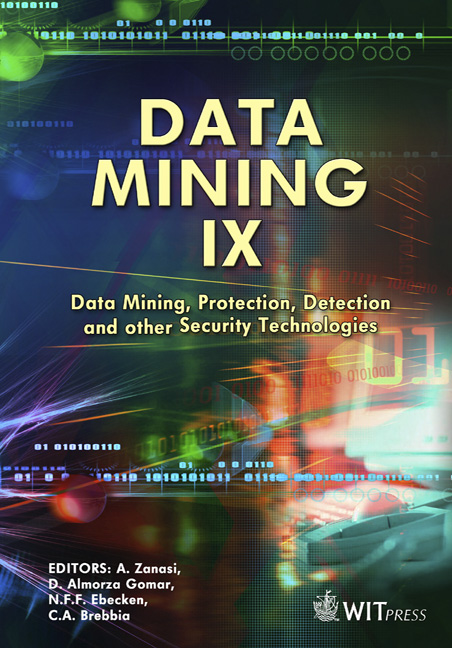Online Police Station, A Cutting Edge Service Against Cybercrime
Price
Free (open access)
Volume
40
Pages
11
Page Range
237 - 247
Published
2008
Size
745 kb
Paper DOI
10.2495/DATA080231
Copyright
WIT Press
Author(s)
C. Aliprandi, L. Lotti, F. Neri & G. Sanna
Abstract
This paper describes a content enabling system that provides deep semantic search and information access to large quantities of distributed multimedia data for both experts and the general public. It provides a language independent search and dynamic classification features for a broad range of data collected from several sources in a number of culturally diverse languages. This system is part of the Online Police Station, launched by the Italian Minister of the Interior in 2006. The Online Police Station uses a virtual reality interface to provide general information and online assistance. Citizens can download forms, make complaints, receive advice and/or report events of an illegal nature. Police specialists can monitor criminal trends to ensure that responses are appropriately focused, and that scarce resources are more effectively employed against criminality. Online Police Station was voted as the Most inspiring good practice for creative solutions to common challenges, during the last European eGovernment Awards 2007. Keywords: Online Police Station, cyber crime, pornography, e-mail abuse, online gambling and betting, open source intelligence, focused crawling, natural language processing, morphological analysis, syntactic analysis, functional analysis, supervised clustering, unsupervised clustering. 1 Online Police Station The availability of a huge amount of data in the open sources information channels leads to the well-identified modern paradox: an overload of information means, most of the time, a no usable knowledge. The process of accessing all
Keywords
Online Police Station, cyber crime, pornography, e-mail abuse, online gambling and betting, open source intelligence, focused crawling, natural language processing, morphological analysis, syntactic analysis, functional analysis, supervised clustering,





